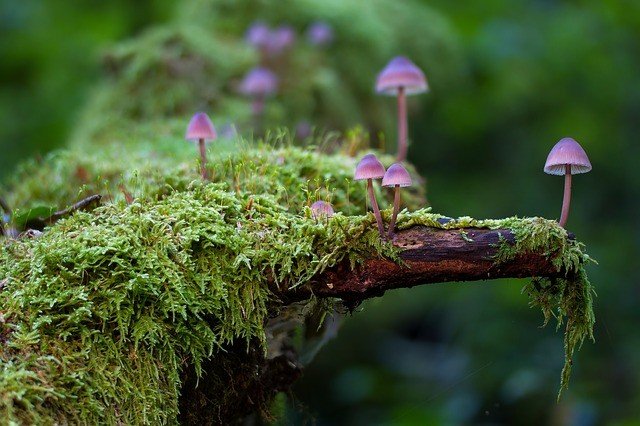All living organisms, including eukaryotic organisms, which can be multicellular and single-celled, are all called "fungi". There are many kinds of mushrooms such as mushroom, rust mushroom, mold mushroom, mold mushroom, mushroom mushroom, mushroom mushroom, mushroom mushroom and hat mushroom.

Mushrooms; humus soil, damp fields and meadows. They are usually seen in spring and autumn. This organic rich mushroom grows in damp and dimly lit environments. It is the extension of the hyphae which bind ax plants to the soil and serve as root. There are no real roots in ax cork. There are roots that are similar to umbrellas or funnels, and roots that do not have peaks. Under the bonnet there are sports hats between the coverslip and coverslip. These are special breeding establishments. These structures are scattered around by various factors such as the wind, making it possible to grow mushroom fungi elsewhere. Caries are fed and multiplied by sports. Growth that occurs under the soil as an important part of the development of ax fungi results in a layer of soil that is not noticeable for a long time.
It is estimated that hatchet fungi first appeared in the Proteromozoic period 4 billion 570 million years ago. The use of this mushroom species dates to the Palaeolithic Age (stone-stone). Research has also shown that fungus fungi are used in bad faith. In historical documents II. Claudius and Pope VII. Clement's enemies are poisoned by Amanita, a poisonous mushroom species.
Brief Information About Hat Mushrooms
Mushroom fungi, which usually grow in moist environments, are usually found in forest areas after rainy days. In the early days, this fungus was lentil sized and could reach 10 centimeters in diameter. Decaying creatures and mushrooms growing in forests, lice and rain water grow in 5 days. Humidity, temperature, pH values, oxygen and light for development. Mushrooms damage mildew in clothing, cameraworks, telescopes, microscopy and other optical materials in mild climates.
Vitality Properties of Hat Mushrooms
Mushrooms growing by sexual and asexual reproduction form the so-called "humenium". Sexual reproduction occurs through the merging of two haploid cells. Spattered spores can spread around with wind or insects and survive for years. In damp environments (post-rain periods), the spores on the ground are germinated and mushrooms enter the circuit. While single-celled fungi can bloom and multiply, asexual reproduction in fungi is often accompanied by zoospores with movement organelles (ie flagellum). There are two important stages in the life cycle of fungi, in the somatic phase and in the reproductive cycle. The somatic phase is the stage in which fungi perform nutrition and nutrition activities, while the production phase of spores and the other phase of reproductive process of reproduction processes. In the fungi, three different somatic structures can be seen, such as a multi-core structure, cell structure and hyphae structure, called plasmodium or pseudoplazmodium. Colorless, fine and long yarns come together to form the so-called mycelium. Mycelium forms the so-called tallus.
It contains the life cycle, sexual and asexual reproduction of the fungi called "Holomorph". Both breeding regimens cause sporulation. The stage in which reproductive structures related to asexual reproductive spores are observed is known as the "anamorph" (defective) phase. The stage in which the sexual genome is observed is "telemorph" (excellent).
Posted from my blog with SteemPress : https://blueblogs.000webhostapp.com/2018/08/mushrooms
Congratulations @inowi! You have completed the following achievement on Steemit and have been rewarded with new badge(s) :
Click on the badge to view your Board of Honor.
If you no longer want to receive notifications, reply to this comment with the word
STOPTo support your work, I also upvoted your post!
Downvoting a post can decrease pending rewards and make it less visible. Common reasons:
Submit